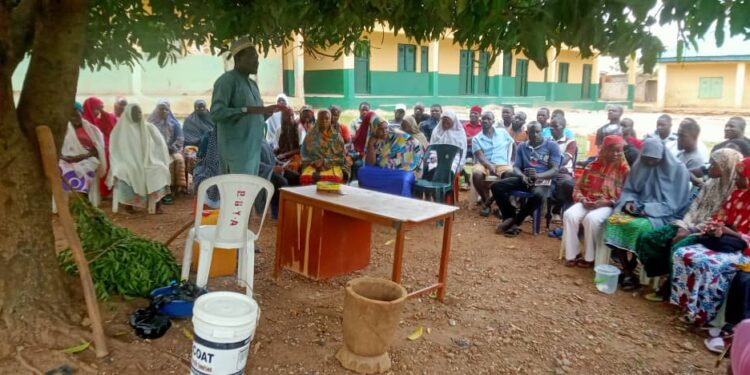The Center for Information and Technology Development (CITAD), in collaboration with ActionAid Nigeria, has conducted a 4-day agroecology training for farmers in Pasepa and Kuchibuyi communities, Bwari Area Council, FCT, on practical skills and knowledge to adopt sustainable agriculture practices.
The training, held between June 17 and June 20, introduced farmers to alternatives to chemical fertilizers and pesticides, promoting sustainable agricultural practices that improve crop quality and safeguarding consumer health.
Addressing reporters during the training yesterday, Sponsorship Officer at CITAD, Johnson Maichibi Musa, said the objective of the project is to train community members on agroecology.
He said: “We understand that local farming practices encourage excessive use of chemicals, which have adverse effects on people’s health. The project has recorded significant success, with some farmers reporting improvements after applying agroecological methods.
“The training is part of a larger effort to promote sustainable agriculture practices in the FCT. The project has trained farmers in various area councils, including Kwali, Gwagwalada, AMAC and Bwari communities.
“The objectives of the training are to facilitate a systemic understanding of agroecology among 200 farmers in Bwari Area Council of the FCT and to help farmers understand how to implement agroecological practices on their farmland.
“We also want to help the farmers evaluate the impacts of their choices on the economic, social and environmental dimensions of the farm and to create awareness on the possibilities and impacts of the set of agroecological practices available. We will also ensure farmers in FCT rural communities are linked to ADP and SWOFON.
“100 Farmers were trained in Pasepa community from the 17th to 18tg June and 100 in Kuchibuyi from 19th to 20th June, 2025. The training was successful, with the community members soliciting that the training should be done quarterly or twice in a year for them to be able to master agroecology very well.”
Also speaking, Agricultural Development Project (ADP) facilitator, Abdullahi Baba, said climate change has seriously affected agricultural activities of farmers in the FCT, due to some of the activities of the farmers.
He said the activities of the farmers on their own farms, such as deforestation and the use of chemical fertilizers, affect soil structure and fertility.
He said: “The purpose of this exercise is to train farmers on agroecology because agroecology is nothing but traditional farming. The training covers three key components: enlightenment on non-usage of synthetic fertilizers and chemicals, advising on alternative means for enriching soil nutrients, and controlling insects and pests without chemicals.
“We’re telling them to embrace the use of local materials such as garlic and pepper instead of harmful chemicals.” He also emphasized the importance of water conservation and organic livestock farming.
“On the first day, we want to teach the farmers the importance of agroecology and what it’s all about.” The training will also cover organic farming systems, adding nutrients to soil without compromising its structure, and controlling insects and weeds without chemicals.”
A farmer and woman leader in Kuchibuyi,
Ruqqaya Yusuf, expressed appreciation to CITAD and ActionAid Nigeria for bringing the project to their community.
“We will encourage our fellow women to implement everything they are taught,” she said.
On his part, Kuchibuyi community chairman, Abubakar Salisu Yakubu, also appreciated CITAD and ActionAid for the training, saying it will then improve crop yields, conserve resources and build resilience to climate change.
“Some of the things they are going to teach us are quite new to us. The project has been instrumental in promoting sustainable agriculture practices in the FCT.
“According to the organizer agroecology is a critical approach to addressing environmental, economic, and social challenges facing the agricultural sector. By adopting agroecological practices, farmers can improve crop yields, conserve resources and build resilience to climate change,” he said.



